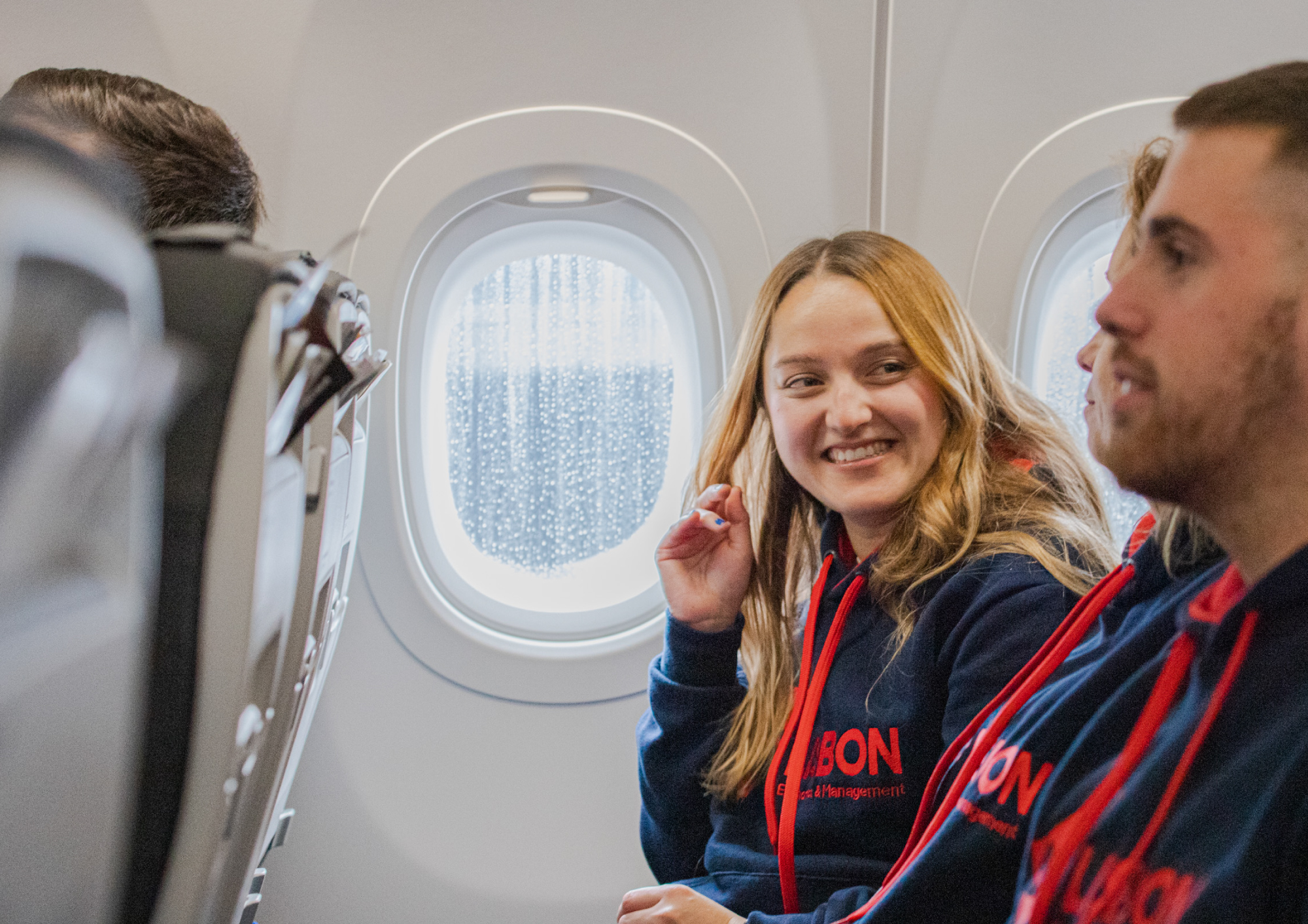Before reading the following information, please consult the relevant Regulation.
To consult job and internship offers, you should search the ISEG career platform - jobteaser.comand on the Highered , Global Talent Network. To access these platforms, please register with your ISEG email address (@aln.iseg.ulisboa.pt).
There are also other websites and platforms that offer European traineeships, such as
– Erasmus Intern (EC and ESN platform)
– GoinGlobal (Restricted access: JobTeaser )
– Praxis
– Expertise in Labour Mobility
– iNow
– Wikijob
– VidaEdu
– ESPA
Countries Eligible for Internships
The eligible countries participating in the Lifelong Learning Programme, and specifically in the Erasmus Sector Programme, are as follows:
Member States of the European Union: Belgium, Bulgaria, Czech Republic, Denmark, Estonia, Germany, Ireland, Greece, Spain, France, Croatia, Italy, Cyprus, Latvia, Lithuania, Luxembourg, Hungary, Malta, the Netherlands, Austria, Poland, Slovenia, Slovakia, Finland, Sweden and the United Kingdom.
Programme countries outside the EU:
Republic of North Macedonia, Iceland, Liechtenstein, Norway, Turkey and Serbia.
Eligibility Criteria
Traineeship mobility can take place during the course of the academic degree and can end up to one year after the end of the course (bachelor's or master's degree).
If the internship application is part of the TFM (Final Master's Work), although the application may take place beforehand (see article 4 of the Regulations), the final decision on eligibility is the responsibility of the coordinator of the ISEG master's programme.
Companies eligible for internships
The student should identify the internship site and make the first contact.
For Erasmus traineeships, the host organisation must be a public or private sector company carrying out an economic activity, regardless of its size, legal status or the economic sector in which it operates, including the social economy). Higher education institutions are included in this definition. Ineligible companies can be found in Article 3 of the Erasmus+ Traineeship Regulations.
Length of Study Period
With a minimum duration of 2 months up to a maximum of 12 months, including mobility for study purposes.
The internship must be completed by 30 September of the year of application, as a new school year officially begins on that date.
If applicable, all the procedures and deadlines of the Masters and Doctorates Secretariat must be complied with.
Selection of Candidates for Scholarships
Candidates are selected and allocated programmes according to a ranking drawn up for this purpose.
The ranking of 1st cycle students is based on the arithmetic average weighted by the credit units (rounded to the hundredths) on the date of application, whether or not they have completed the course.
In the case of curricular internships, the ranking of 2nd cycle students is based on the arithmetic average weighted by the credit units (rounded to the hundredths) of the grades of the curricular units relating to the 1st curricular year. Unsuccessful curricular units will be given a mark of 8; in the event of a tie when applying the general average criterion, the criterion of the curricular units with the highest marks will be used.
In the case of extracurricular internships, which may cover all three study cycles, the ranking of students is based on the arithmetic average weighted by the credit units (rounded to the hundredths) at the date of application. the course may or may not have been completed.
For the award of the Erasmus grant, priority will be given to curricular internships.
Application Formalisation
In order to be selected for funding through an Erasmus traineeship grant, the traineeship application must be submitted to the IMO by the end of July of the previous academic year and/or at least 60 days before the start date of the traineeship.
The award of the grant will depend on the availability of funding when it is confirmed. The Erasmus internship may be carried out with a zero grant. Applications will always be subject to the availability of funds.
There are four stages to applying for an Erasmus traineeship.
1st Stage:
Application to the "Host Company":
It is the student's responsibility. The first contact with the host company must be made by the student concerned. The student can write a "Cover Letter" stating the purpose of the internship and its duration. The "Letter of Introduction" must be accompanied by the Curriculum Vitae in English or in the language of the host country (Europass format recommended).
Stage 2:
Application for Erasmus trainee status: confirmation of the traineeship depends on the "Host Company" issuing a "Letter of Acceptance" . Letters of Acceptance" will only be accepted if they comply with the minimum content described in this example, namely that they are printed on the company's letterhead, indicating the duration of the internship, the identification of the tutor, a brief description of the work plan to be developed and the intern's responsibilities. The letter must be signed and stamped (copies will not be accepted).
Stage 3:
Formalising the "Internship Agreement/Learning Agreement for Traineeships": the Internship Agreement is the Erasmus mobility document for Traineeships which contains: the work or work programme to be carried out; the learning to be acquired in terms of knowledge; the competences and skills to be acquired; mentoring; the number of hours, which must be at least 400 hours; the correspondence of the internship with the student's studies/degree; the recognition to be granted by the mobility, the period of mobility. This agreement is the joint responsibility of the student and the IMO.
Before leaving, the student must agree, in collaboration with the departmental coordinator/international mobility office (IMO) and the Host Company, on a work plan, the "Training Agreement", signed by all three parties involved. This procedure will be formalised by the IMO.
Stage 4:
Completion of the "Student Application Form", only for students who intend to apply for Erasmus funding.
For the award of the Erasmus grant, priority will be given to curricular internships.
Documentation to be handed in at the end
The submission of documents at the end of the internship is the joint responsibility of the student intern and the International Mobility Office (IMO). At the end of the internship, the student's file must include the "After the Mobility" internship certificate (page 3 of the document) completed and signed by the Host Company and the declaration of stay.
In the case of extracurricular internships, all or part of the internship will be recognised in the Diploma Supplement, when requested. If the internship is considered curricular, it is compulsory to submit a Final Internship Report.
In addition to the documents mentioned above, the student must also comply with the internship rules within the scope of their master's programme.
Accommodation, Travel and Insurance
The student is responsible for finding/booking accommodation and other conditions of stay. The student should organise the travel/accommodation process well in advance to ensure that he/she is at the internship location on the agreed day and time.
The European Health and Sickness Card (EHIC) is a document that ensures the provision of health care when beneficiaries of a social security system from one of the European Union states, the European Economic Area or Switzerland temporarily travel within this area. It must be requested in advance at http://www.seg-social.pt/.
In addition, you can take out personal accident insurance, or any other insurance that seems more appropriate to the specific situation, with an insurance agency.











